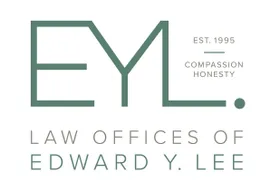The Impact Of Incorrect Witness Testimony

Being involved in a motorcycle accident is a traumatic experience, and having reliable witnesses can significantly impact the outcome of your case. However, what happens if the witnesses to your accident are incorrect? Whether it’s due to honest mistakes or intentional falsehoods, inaccurate witness testimonies can complicate your claim. Understanding the potential consequences and how to address them is crucial for ensuring a fair resolution as a motorcycle accident lawyer can explain:
The Role Of Witness Testimony
Witness testimony is often a pivotal piece of evidence in motorcycle accident cases. Witnesses can provide an objective account of the accident, helping to establish what happened, who was at fault, and the sequence of events leading up to the collision. Their statements can corroborate your version of events or provide additional details that might be missing from physical evidence and police reports. These statements play a crucial role in insurance dealings.
When Witnesses Get It Wrong
Witnesses can be mistaken for several reasons. They might misremember details, be influenced by external factors, or simply not have had a clear view of the accident. In some cases, they may unintentionally mix up events or provide conflicting statements. These inaccuracies can significantly impact the direction of your case.
Incorrect witness testimony can lead to several challenges in a motorcycle accident claim:
- Disputes Over Fault: If witnesses provide inaccurate accounts, it can create disputes over who was at fault for the accident. This can complicate the determination of liability, especially if the evidence is not clear-cut.
- Insurance Complications: Insurance companies rely heavily on witness statements when evaluating claims. Incorrect testimony can lead to disputes with insurance adjusters, potentially delaying or reducing your settlement.
- Legal Hurdles: Inaccurate witness accounts can also pose challenges in court. If the case goes to trial, incorrect testimony can affect the jury’s perception and the overall outcome of the case. This may especially cause problems if there are not other sources to prove who is correct such as camera footage.
Addressing Incorrect Witness Testimony
Dealing with incorrect witness testimony requires a strategic approach. Here are some steps you can take to mitigate its impact:
- Gather Additional Evidence: Supplement witness statements with other forms of evidence. This can include photographs, video footage, police reports, and expert analysis. The more evidence you have, the less reliant you are on potentially flawed witness accounts.
- Cross-Examination: During legal proceedings, your attorney can cross-examine witnesses to highlight inconsistencies or inaccuracies in their testimony. Effective cross-examination can undermine the credibility of incorrect statements.
- Expert Testimony: Bringing in experts, such as accident reconstruction specialists, can provide a professional analysis that may counteract incorrect witness accounts. Their testimony can help establish a clear and accurate picture of the accident. They can also provide models of the accident to demonstrate exactly how it happened.
- Legal Representation: Working with a skilled lawyer is crucial in these situations. Attorneys like those at The Andres Lopez Law Firm can attest to the importance of thorough investigation and strategic litigation to address witness inaccuracies. They can help gather and present evidence effectively, ensuring that incorrect witness testimony does not derail your case.
If you find yourself facing such a situation, don’t hesitate to seek professional legal assistance to ensure your case is handled effectively. If you or someone you know is dealing with the aftermath of a motorcycle accident, it’s crucial to have reliable legal support. Contact a knowledgeable lawyer to discuss your case and explore your options for securing the best possible outcome.
Note: The information provided in this blog post about injury car accidents in Los Angeles is for general informational purposes only and should not be considered legal advice.
Disclaimer: No attorney-client relationship is established by accessing or using this information. Readers should consult with a qualified attorney for advice specific to their situation. The authors make no representations regarding the accuracy or suitability of the information provided and disclaim any liability for reliance on it. Laws and regulations may vary and are subject to change.



